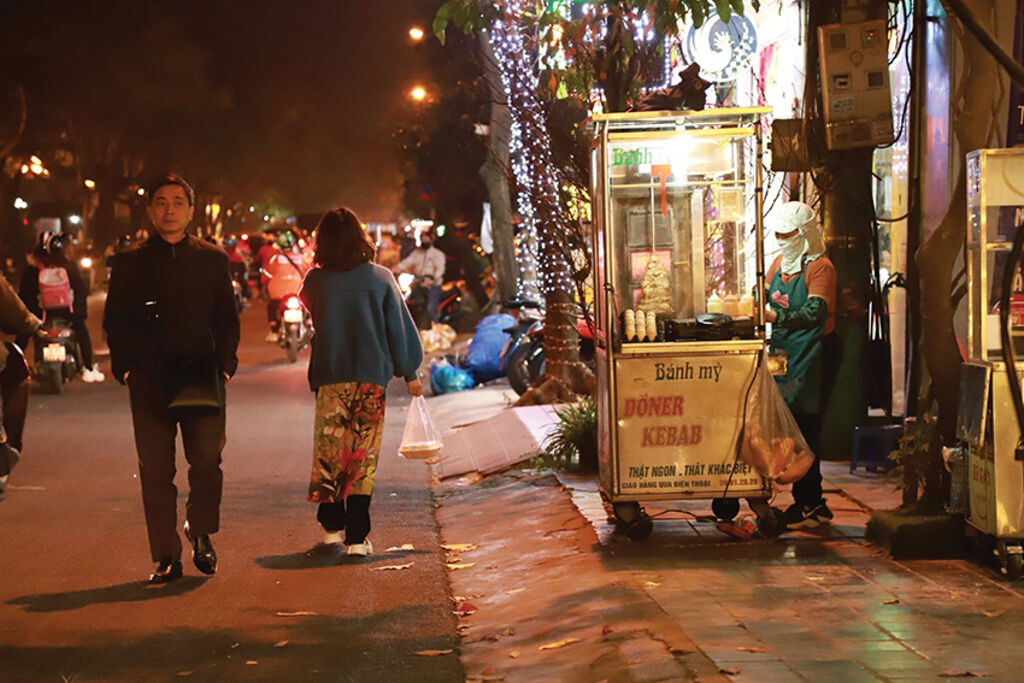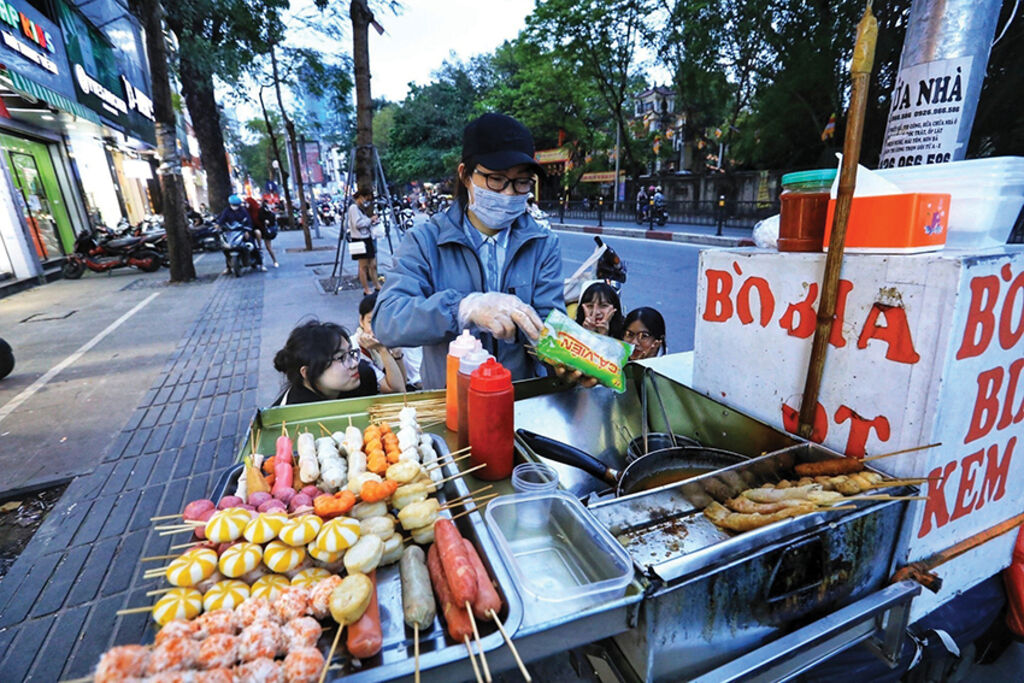 |
| A banh mi counter in Hanoi__Photo: Thanh Thao/VNA |
Summer, the season of foodborne illnesses, has not yet reached its peak but not a few serious cases of mass food poisoning have been reported over the past few months.
On May 7, the People’s Committee of Long Khanh city, Dong Nai province, announced that they had transferred the case files of a food poisoning incident to the investigation police agency. From the evening of May 1, hospitals in Long Khanh city started admitting numerous suspected food poisoning victims. Preliminary investigations found that symptoms including nausea, diarrhea, fever and abdominal pain appeared several hours after patients ate banh mi, a type of Vietnamese baguette filled with various ingredients like pâté, sausage, pickle and sauce, bought from a food shop in Xuan Binh ward, Long Khanh city. The number of hospitalized patients finally mounted to 568.
Later on May 14, 438 workers of a company based in the northern province of Vinh Phuc were rushed to hospital following a company lunch. They all had the same symptoms like vomiting, abdominal pain and headache. According to investigation results, the culprit was Bacillus cereus bacteria found in one of the dishes served for lunch.
In March, another severe case of mass food poisoning happened at Tram Anh chicken rice restaurant in the south-central province of Khanh Hoa, resulting in 369 people being taken to hospital.
Are there any loopholes in food safety regulations?
Foodborne illnesses are always a serious public health concern in Vietnam. It was reported that in 2023, the country recorded over 125 food poisoning incidents affecting more than 2,100 people and causing 28 deaths. According to information disclosed by the Vietnam Food Safety Authority (Ministry of Health) at a video conference discussing measures to prevent food poisoning held in Hanoi on May 21, compared to the last year’s figures, the number of food poisoning cases in the first five months of 2024 slightly decreased to 36 from 40 but the number of affected people increased by more than 200 percent to 2,138.
Addressing the conference, Deputy Minister of Health Do Xuan Tuyen raised a question about food safety regulations. Food safety-related issues are now governed under several documents, including the 2010 Law on Food Safety, Government Decree 15/2018/ND-CP guiding the Law on Food Safety, circulars of the Ministry of Health, Ministry of Agriculture and Rural Development and Ministry of Industry and Trade, and legal documents in relevant fields and sectors such as customs and tax.
“Why do mass food poisoning cases like those in Khanh Hoa and Dong Nai still occur in recent times? We have to consider whether there are any legal loopholes and if institutions [on food safety] remain incomplete, we will propose recommendations [for improving them],” Tuyen said.
 |
| Street food are attractive to not only locals but also tourists__Photo: Tuan Anh/VNA |
Let’s examine current regulations on business registration and food safety conditions applicable to food vendors. Under Article 3.1 of Decree 39/2007/ND-CP on independent commercial activities not subject to business registration, food vendors, with or without fixed business locations, are not required to make business registration. As per Article 12 of Decree 15/2018/ND-CP guiding the Law on Food Safety, street food vendors are not liable to apply for a certificate of satisfaction of food safety conditions.
Back to the case in Dong Nai province, at the time authorities conducted inspection, the banh mi shop, the source of the food poisoning outbreak, had no certificate of satisfaction of food safety conditions and none of its four employees had food safety training certificate or health certificate. However, according to a report from the People’s Committee of Long Khanh city, the shop is a small-scale food shop and therefore not subject to certificate of satisfaction of food safety conditions. It is worth mentioning that such small-scale shop sells more than a thousand servings per day, an impressive figure for any street food vendor.
Given the fact that buying breakfast or lunch from street vendors is familiar to many urban dwellers in Vietnam and not a few food vendors, though considered small-scale, sell hundreds or even thousands of servings per day like the banh mi shop in Dong Nai province, is it the time for tightening food safety regulations applicable to small-scale food vendors?
Another issue raised at the video conference on food safety is law enforcement.
Although street food vendors are not required by law to apply for a certificate of satisfaction of food safety conditions, under Decree 15/2018/ND-CP, they are still obliged to keep food samples and be held responsible for the food they sell. As for restaurants and company and school kitchens, in addition to keeping food samples, they are also required to control input materials. However, Director of the Vietnam Food Safety Authority Nguyen Thanh Phong admitted that “there exist some problems concerning the enforcement of law.” Many food vendors fail to comply with requirements on retention of food samples; some establishments operate when not yet granted certificates of satisfaction of food safety conditions while others buy input materials without proofs of origin.
Immediate solutions
Prime Minister Pham Minh Chinh on May 3 issued Official Telegraph 44/CD-TTg requesting ministries and local administrations to immediately implement a number of measures for preventing and handling food poisoning, including intensifying inspections of food establishments and imposing stricter penalties for violations.
Specifically, the Government leader requests the Ministry of Health to strengthen inspection of compliance with food safety regulations and strictly handle violations. The ministry is also asked to consider the building of a food safety incident warning system.
The Ministry of Agriculture and Rural Development and Ministry of Industry and Trade are tasked to take the lead in implementing regulations on food traceability and coordinate with the Ministry of Health in investigating causes of food poisoning incidents.
The ministries are also required to deploy programs to monitor and prevent incidents and analyze risks related to food safety in the fields under their management.
As for local administrations, the Prime Minister requires them to evaluate food safety risks on a regular basis and strictly handle violators of food safety regulations in their localities.-









